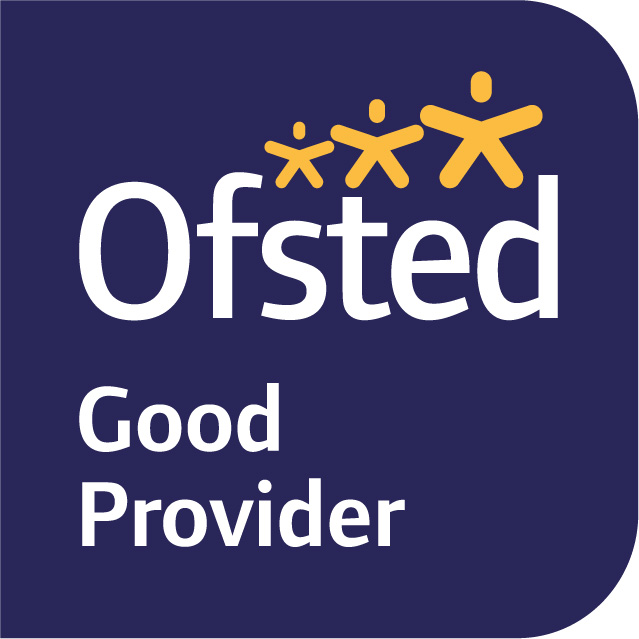This website uses cookies so that we can provide you with the best user experience possible. Cookie information is stored in your browser and performs functions such as recognising you when you return to our website and helping our team to understand which sections of the website you find most interesting and useful.
Access to Higher Education
Access to HE: Health & Social Care
If you’ve been away from education for some time or didn’t quite achieve your College qualifications, an Access to Higher Education programme will give you the confidence and skills to take that next step to start a degree or equivalent University level course.
Buxton & Leek College is proud to be part of the University of Derby, which is particularly beneficial for our Access to Higher Education programmes. You can study an Access to Higher Education Diploma at the University of Derby Kedleston Road Campus in Derby. These programmes are between 2 and 3 days a week classroom-based, with additional personal study time required.
If you would like to know what funding, bursaries or loans may be available to you whilst on your access course please click here.
If you are aged 19 or over you may be eligible for an Advanced Learner Loan to pay for your Access programme. You won’t have to pay anything up front and you also won’t need to pay anything back until you are earning a £27,250 salary. Student Finance England will ‘write off’ any outstanding Advanced Learner Loan balances you owe for an Access to HE programme once you complete a higher education course. This means you don’t have to repay it. Please see the following website https://www.gov.uk/advanced-learner-loan or email our Student Money and Rights Adviser: Studentmoneyadviceblc@derby.ac.uk who will be happy to answer any queries you have.
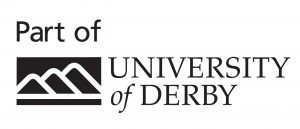
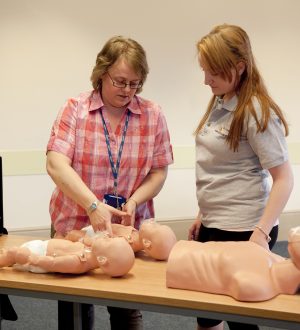
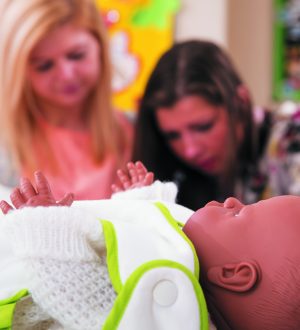
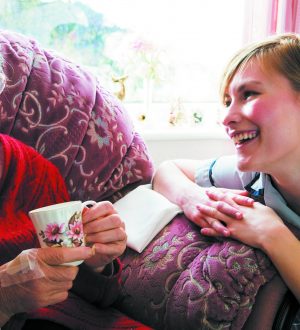
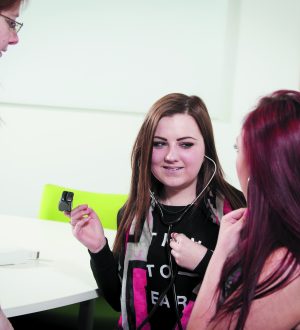
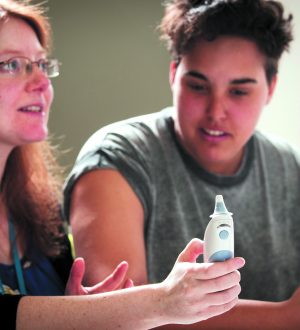
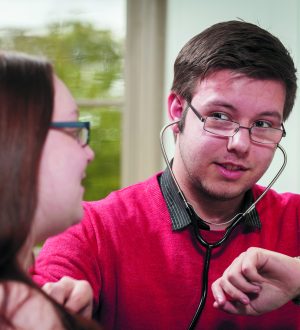
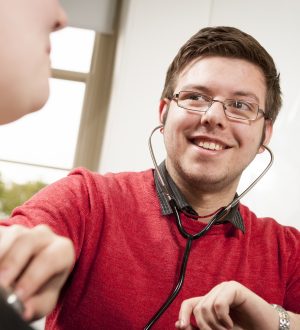
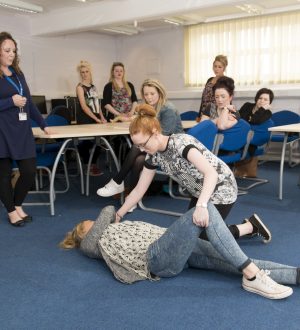
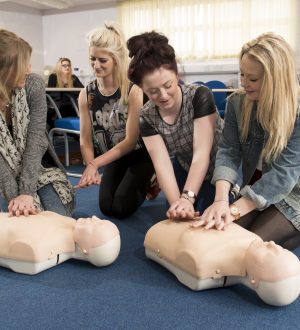
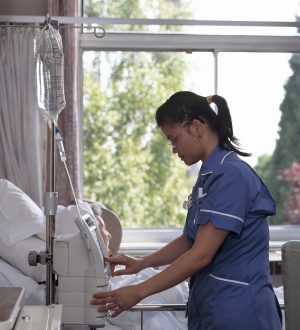
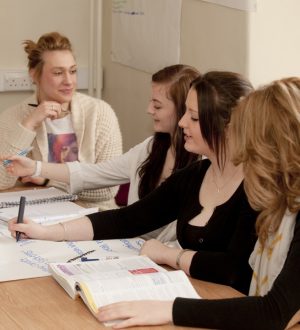




Available courses
Access to HE: Social Work
- Course type: Adults
- Study Type: Full-time
- Study Duration: 36 weeks
- Level: Level 3
- Campus: Derby
- Start date: September
-
Tell me about the course
This programme is designed for adults, over 19-years-old, who may be looking for a career change, or to upskill, but do not currently have the relevant A-Levels or Level 3 qualifications to access a university degree course.
The aim of the Access to HE: Social Work course is to provide you with a fundamental knowledge and understanding of Social Policy, Sociology and Psychology, and Study Skills required to transition onto Level 4 undergraduate study. You will study the following units:
Social Policy
Roles & Responsibilities of a Social Worker
What does a Social Worker do? What qualities, skills and values do they have? What attributes must a social worker have, and can the student recognise and identify some of those qualities such as patience, resilience and respect within their own attributes?
Professional Communication in Social Work
How do we communicate? How can we communicate better (more effectively)? Verbal and non-verbal signs (semiotics) play a significant role in interactions. Embedded within the unit are discourses around power and agency. Systems of control are also explored and defined, and students will produce an 8–10-minute presentation describing and exploring their future roles and what part communication within social work is imperative.
The Law in Social Work Part 1
Using a workbook, the student will recognise and understand the processes of how legislation is created, how it is applied, and identify cases where the law has been challenged, such as the Cleveland Case.
The Law in Social Work Part 2
Students will work through three serious case inquiries into historical cases of abuse: Kimberley Carlile, Jasmine Beckford, and Operation Bullfinch. These cases draw questions of how legislation has largely failed to identify and protect children whilst also missing opportunities to learn valuable lessons.
Equality & Diversity in Social Work Part 1
Students work independently to identify a social issue related to the Equality Act 2010. Students produce a report intended to be a deeper evaluation of their social issue and direct the work towards a specific audience (local MP).
Equality & Diversity in Social Work Part 2
Students compare and contrast the Human Rights Act with the Equality Act 1998 and present an evaluation of the strengths and weaknesses of the two pieces of legislation.
Sociology
Sociological Theory; An Introduction
In this introductory, ungraded unit, you will gain an understanding of three very influential theories – Marxism, functionalism and feminism – and how they have tried to explain the nature and purpose of the family.
Class & Stratification
Does social class still matter in the twenty-first century? In this unit, you will explore the nature of inequality and how it affects people’s lives, for example, their level of health and educational achievement. You will continue to build on your theoretical understanding by studying the perspectives of Weber and others.
Crime & Deviance
Why do people sometimes behave in ways that society deems ‘unacceptable’? What happens when they do? In this unit, you will explore a wide range of issues, including media representations of crime, individual experiences and statistical evidence. A number of theoretical explanations will be evaluated.
Sociology of Health
What is health? Is it a biological or a social concept? What do we mean when we talk about our ‘mental health’? What place do medical professionals have in society? These are just some of the questions we discuss in this unit.
Psychology
Research Methods in Psychology
This introductory unit is the groundwork for psychology. You will learn the various methods into how psychologists’ study human behaviour, such as the traditional laboratory experiment, the discreet observations, and case studies on a range of psychological areas of study.
Early Social Development
The second unit explores key developmental theories and stages of a child’s development. This is focused predominantly on concepts and research that can be used to understand milestones and the child as a learner holistically. You will investigate key ideas and examine how the growth of physical and cognitive stages in a child’s formative years is integral to education provision. The assignment for this unit is an essay that requires you to demonstrate critical theories to child development to a practical setting of your choice.
Key Studies in Psychology
Here you delve into six key studies within the history of Psychology, all fascinating, and some rather gritty with surprising outcomes. This unit will particularly build on the initial research methods unit by delving into key laboratory experiments, observations, and case studies. This unit heavily encourages debate each week as part of preliminary discussions surrounding ethical considerations that may or may not have been adhered to, as well as how findings of the study relate to the real world.
Controversial Issues in Psychology
This topic delves into the controversial issues of advertising, propaganda, and psychometric testing. This unit considers the unethical use of emotions such as sadness and fear to encourage a population to buy products and follow strong government leadership. Further it analyses the improper use of psychometric testing and the history of how it was abused to discriminate.
Study Skills
Study Skills provides you with some essential skills necessary to complete your Access Diploma and progress onto undergraduate study and is regarded as increasingly important by degree programme admissions tutors. Study skills is comprised of two units: Progression Skills and English for Academic Study. In your study skills lessons, we aim to provide you with a range of new skills or to give you the opportunity to develop existing skills.
This course will be delivered face-to-face on the Derby Campus where you will have access to the University of Derby’s library and on-site facilities for Further Education students. You will learn through a combination of theory-based lectures, group-work and independent research and investigation. In addition, BLC offers an enhanced student experience with visits from guest speakers who provide knowledge based on personal experience and offer invaluable advice on the industry.
We understand that coming back to college can be a daunting experience, but we have a great team that can guide and support you through your studies. We make sure that our learning environment will give you the tools to be a success and help you secure that dream career that you aspire to. There is no barrier to learning here at BLC.
-
What qualifications will I get?
Level 3 Access to Higher Education Diploma in Social Work
-
What can I go onto next?
You could progress on to a wide variety of degree courses relevant to teaching including:
- Early Years Teacher
- Primary School Teacher
- Secondary School Teacher
- Further Education Lecturer
- Special Educational Needs Teacher
- English as a Foreign Language Teacher
- Learning Mentor
-
HOW WILL I LEARN?
A diverse range of teaching and learning activities are used across each subject. Sessions are interactive and work to include student participation and student-led tasks. You will likely learn differently in each taught session; some sessions utilise group-work, others will focus on independent research and investigation. Scheduled teaching hours are led by your tutor who designs the learning accordingly to the group profile and therefore you will be exposed to a vast range of practises – this also helps demonstrate the techniques/strategies reviewed within the subjects.
-
How will I be assessed?
You will be assessed through a range of different assessments that include essay writing, presentations, writing and academic posters. Assessments are explained within each unit and support is offered to scaffold your progress throughout the course. These are all designed to apply the knowledge, skills and behaviours from sessions (and wider reading/experiences) into areas of interest within education.
-
Entry requirements
Need to be over 19 years of age and have achieved and can provide evidence of GCSE Mathematics and English at Grade C/4 and above, OR Functional Skills Level 2 in English and Mathematics.
Access to HE Diploma: Health & Medical Science Professions
- Course type: Adults
- Study Type: Full-time
- Study Duration: 36 weeks
- Level: Entry 2 and 3
- Campus: Derby
- Start date: September
-
TELL ME ABOUT THE COURSE
This programme is designed for adults, over 19-years-old, who may be looking for a career change, or to upskill, but do not currently have the relevant A-Levels or Level 3 qualifications to access a university degree course.
The aim of the course is to provide you with a fundamental knowledge and understanding of Biology, Physics OR Chemistry, and the Study Skills required to transition onto Level 4 undergraduate study. You will study the following units:
Diploma details:
You will cover Biology, Physics OR Chemistry, and Study Skills. Each of these contain content that will be transferable to your degree. The difference between the Physics and Chemistry groupings depends on what degree you would like to do. Further information about this can be found in the ‘future careers’ section. In addition, this course will enable you to develop skills that will help you transition to Level 4 study.
Biology
Human Cell Biology
This unit is designed to give a foundation undertraining of eukaryotic cellular biology. Within this unit we will look at the components of human cell and investigate their structure and function. The unit will give the learner an understanding of the function of many organelles, such a the nucleus, endoplasmic reticulum, Golgi apparatus, lysosomes, and many more besides. We will also investigate the mechanisms of cellular transport and the role the cell membranes play in this process.
Genetics
Students will examine in the core concept the central dogma of molecular biology. Within the unit the learner will explore the importance and function of genetic material including DNA, mRNA, tRNA genes and chromosomes. We will discuss types of cell division and explore the importance of DNA replication. We will Understand the principles of Mendelian genetics and explain the role of multiple alleles in the inheritance. This unit lays the foundations of genetic understanding which future units will build upon.
Inherited Disease
This unit leads directly on from the genetics unit and explores the medical consequences of errors within our genome. This unit offers the learner some freedom to explore genetic illnesses which are of interest to the student. We will also have exciting guest lectures from senior geneticists who will offer their expertise within the subject.
Human Cardiac & Respiratory Systems
The unit will offer students can understand of the structure and function of the respiratory and cardiac systems. Learners will understand the structure/function of blood and investigate the circulation of blood though blood vessels. The unit will investigate control mechanisms of the cardiovascular and respiratory systems. This unit will explore the causes, symptoms and treatments of cardiovascular disease, including analysing the statistical relationship between smoking and health.
Skeleton & Muscles
This unit will examine the function of the human skeletal system, including types of bones, types of joints and connective tissues such as tendons, ligaments and cartilage. Learners will be taught the biochemical differences between skeletal muscle, smooth muscle and cardiac muscle; including an introduction to sliding filament theory.
Health Promotion
This unit is unlike any other. Rather than a purely biological perspective, this unit will look at ‘health’ from a larger, societal, view. We will draw upon aspects of psychology, sociology, law, economics and even politics to examine the health challenges being faced by Brutish society in 2022. Concepts such as health inequality will be explored, with students being encouraged to research the larger picture of health provision within a society.
Physics
Static, Forces, & Newton’s Laws of Motion
This introductory unit investigates balancing forces acting on an object (including gravitational force), objects moving under external forces, and friction.
Waves, Light & Sound
This unit investigates oscillatory motion (such as mechanical and electromagnetic waves and their frequencies), properties of light and sound, and speed of waves.
Exponentials & Logs (Mathematics unit)
This unit explores the powers of numbers, exponential growth, and solving problems involving growth and decay (e.g., radioactive decay)
Electricity
This unit explores electrical charge and current, resistance and capacitance, and calculating electrical energy consumption and cost.
Electromagnetism
This unit investigates electric and magnetic fields, electromagnetic induction and its use in power generation, and transformers.
Nuclear Properties of Material
This unit explores atomic structure of materials, structure and properties of atoms, radiation and radioactive decay, and nuclear fission/fusion.
Chemistry
Fundamentals of Chemistry
Haloalkanes, Alcohols, Aldehydes & Ketones
Alcohols, Amines and Carboxylic Acids
Reaction Kinetics
Bonding, Crystal Structure & Shapes
Study Skills:
Study Skills provides you with some essential skills necessary to complete your Access Diploma and progress onto undergraduate study and is regarded as increasingly important by degree programme admissions tutors. Study skills is comprised of two units: Progression Skills, Presentation Skills, and English for Academic Study. In your study skills lessons, we aim to provide you with a range of new skills or to give you the opportunity to develop existing skills.
This course will be delivered face-to-face on the Derby Campus where you will have access to the University of Derby’s library and on-site facilities for Further Education students. You will learn through a combination of theory-based lectures, group-work and independent research and investigation. In addition, BLC offers an enhanced student experience with visits from guest speakers who provide knowledge based on personal experience and offer invaluable advice on the industry.
We understand that coming back to college can be a daunting experience but we have a great team that can guide and support you through your studies. We make sure that our learning environment will give you the tools to be a success and help you secure that dream career that you aspire to. There is no barrier to learning here at BLC.
* You will complete Physics OR Chemistry depending on which degree you would like to go on to study. Further information about this can be found in the ‘Future Careers’ section.
-
WHAT QUALIFICATIONS WILL I GET?
Level 3 Access to Higher Education Diploma in Health Science
-
WHAT CAN I GO ONTO NEXT?
You could progress on to any degree course relevant to the study of health science. For example:
- Diagnostic Radiography (Physics pathway)
- Sonographer – National Careers Service (Physics pathway)
- Pharmacist – National Careers Service (Chemistry pathway)
- Dental Therapy – National Careers Service (Chemistry pathway)
-
HOW WILL I LEARN?
A diverse range of teaching and learning activities are used across each subject. Sessions are interactive and work to include student participation and student-led tasks. You will likely learn differently in each taught session; some sessions utilise group-work, others will focus on independent research and investigation. Scheduled teaching hours are led by your tutor who designs the learning accordingly to the group profile and therefore you will be exposed to a vast range of practises – this also helps demonstrate the techniques/strategies reviewed within the subjects.
-
HOW WILL I BE ASSESSED?
You will be assessed through a range of different assessments that include essay writing, presentations, writing and academic posters. Assessments are explained within each unit and support is offered to scaffold your progress throughout the course. These are all designed to apply the knowledge, skills and behaviours from sessions (and wider reading/experiences) into areas of interest within education.
-
ENTRY REQUIREMENTS
You’ll need to be over 19 years of age. You will have achieved and can provide evidence of GCSE Mathematics at C/4 or above and GCSE English at grade 3/D or above.
Access to HE Diploma: Health & Medical Professions
- Course type: Adults
- Study Type: Full-time
- Study Duration: 36 weeks
- Level: Level 3
- Campus: Derby
- Start date: September
-
TELL ME ABOUT THE COURSE
This programme is designed for adults, over 19-years-old, who may be looking for a career change, or to upskill, but do not currently have the relevant A-Levels or Level 3 qualifications to access a university degree course.
The aim of the diploma is to provide you with a fundamental knowledge and understanding of Biology and Health Psychology, and Study Skills required to transition onto Level 4 undergraduate study. You will study the following units:
Human Biology
Human Cell Biology
This unit is designed to give a foundation undertraining of eukaryotic cellular biology. Within this unit we will look at the components of human cell and investigate their structure and function. The unit will give the learner an understanding of the function of many organelles, such as the nucleus, endoplasmic reticulum, Golgi apparatus, lysosomes, and many more besides. We will also investigate the mechanisms of cellular transport and the role the cell membranes play in this process.
Biochemistry
This unit explores the fundamentals of chemistry, starting with the structure of atoms and ions. From there students will begin to look at types of bonding found within biology to form molecules such as carbohydrates, proteins, lipids, and nucleic acids. The student will learn to recognise the structure of the biological molecules, relate this structure to their function, and explain the formation and breakdown of polymer molecules within biology. We will also explore the fascinating world of enzymes, with particular attention paid to evaluating the models of enzyme function and explaining the concept of enzyme activation energy.
Genetics
Students will examine in the core concept the central dogma of molecular biology. Within the unit the learner will explore the importance and function of genetic material including DNA, mRNA, tRNA genes and chromosomes. We will discuss types of cell division and explore the importance of DNA replication. We will Understand the principles of Mendelian genetics and explain the role of multiple alleles in the inheritance. This unit lays the foundations of genetic understanding which future units will build upon.
Inherited Disease
This unit leads directly on from the genetics unit and explores the medical consequences of errors within our genome. This unit offers the learner some freedom to explore genetic illnesses which are of interest to the student. We will also have exciting guest lectures from senior geneticists who will offer their expertise within the subject.
Infectious Disease
This unit will describe the characteristics of viruses, bacteria, and fungi. Students will explore diseases caused by these microorganisms; with a focus on COVID19, TB and HIV.
We will describe the key methods by which pathogens may be spread and examine treatment options such as vaccinations, Antibiotics, and antiviral drugs. This unit will also offer an insight into the fasciation world of immunology. We will explore both innate and adaptive immunity, consider antibody formation from both natural and artificial exposure to antigens; and evaluate the effects of mass immunisation programmes.
Human Cardiac & Respiratory Systems
The unit will offer students an understanding of the structure and function of the respiratory and cardiac systems. Learners will understand the structure/function of blood and investigate the circulation of blood though blood vessels. The unit will investigate control mechanisms of the cardiovascular and respiratory systems. This unit will explore the causes, symptoms, and treatments of cardiovascular disease, including analysing the statistical relationship between smoking and health.
Skeleton & Muscles
This unit will examine the function of the human skeletal system, including types of bones, types of joints and connective tissues such as tendons, ligaments, and cartilage. Learners will be taught the biochemical differences between skeletal muscle, smooth muscle, and cardiac muscle, including an introduction to sliding filament theory.
Health Promotion
This unit is unlike any other. Rather than a purely biological perspective, this unit will look at ‘health’ from a larger, societal, view. We will draw upon aspects of psychology, sociology, law, economics and even politics to examine the health challenges being faced by Brutish society in 2023. Concepts such as health inequality will be explored, with students being encouraged to research the larger picture of health provision within a society.
Control & Regulation
This unit will cover key concepts involved in homoeostasis. Including osmoregulation, blood glucose regulation and temperature control; We will also explore the medical consequences of the loss of control, including diabetes
Human Reproduction
Within this unit, students will examine the structure and function of the male and female reproductive systems and gamete formation. We will explore the role of FSH, LH, oestrogen and progesterone in the regulating the menstrual cycle and describe the events involved in fertilisation. Learners will explore the role of hormones in maintaining pregnancy, initiating birth and lactation; before detaining the events of parturition.
Health Psychology
Research Methods: This introductory unit is the groundwork for psychology. You will learn the various methods into how psychologists’ study human behaviour, such as the traditional laboratory experiment, the discreet observations, and case studies on a range of psychological areas of study.
Early Social Development: You will gain an insight into the differing theories into the nature versus nurture debate of how social skills are formed. This is a long-standing discussion in the field of psychology that seeks to understand the relative contributions of genetics and environmental factors. When it comes to the development of social skills in infants, this debate is particularly relevant.
Key Studies in Psychology: Here you delve into six key studies within the history of Psychology, all fascinating, and some rather gritty with surprising outcomes. This unit will particularly build on the initial research methods unit by delving into key laboratory experiments, observations, and case studies. This unit heavily encourages debate each week as part of preliminary discussions surrounding ethical considerations that may or may not have been adhered to, as well as how findings of the study relate to the real world
Health Promotion: this unit gives you the opportunity to create your own health promotion campaign. You will select a mental health or physical disorder/issue that you want to raise awareness about, such as the stigma of mental health disorders, or the promotion of screening programmes in the hopes to prevent future illness. Within your campaign, you will decide who you want your target audience to be and how you will promote the health issue, such as using leaflets, educational programmes, and even social media. You will not be expected to carry out the health promotion campaign, but you will design it so that it could be implemented.
Study Skills
Study skills provides you with some essential skills necessary to complete your Access Diploma and progress onto undergraduate study and is regarded as increasingly important by degree programme admissions tutors. Study skills is comprised of two units: Progression Skills and English for Academic Study. In your study skills lessons, we aim to provide you with a range of new skills or to give you the opportunity to develop existing skills.
This course will be delivered face-to-face and you will learn through a combination of theory-based lectures, group-work and independent research and investigation. In addition, BLC offers an enhanced student experience with visits from guest speakers who provide knowledge based on personal experience and offer invaluable advice on the industry.
We understand that coming back to college can be a daunting experience but we have a great team that can guide and support you through your studies. We make sure that our learning environment will give you the tools to be a success and help you secure that dream career that you aspire to. There is no barrier to learning here at BLC.
-
WHAT QUALIFICATIONS WILL I GET?
Level 3 Access to Higher Education Diploma in Health Professions
-
WHAT CAN I GO ONTO NEXT?
You could progress on to any degree course relevant to the study of health professions. For example:
- Nursing (Adult, Mental Health, Children’s)
- Midwifery
- Occupational Therapy
- Nutrition
- Physiotherapy
- Paramedic
-
HOW WILL I LEARN?
A diverse range of teaching and learning activities are used across each subject. Sessions are interactive and work to include student participation and student-led tasks. You will likely learn differently in each taught session; some sessions utilise group-work, others will focus on independent research and investigation. Scheduled teaching hours are led by your tutor who designs the learning accordingly to the group profile and therefore you will be exposed to a vast range of practises – this also helps demonstrate the techniques/strategies reviewed within the subjects.
-
HOW WILL I BE ASSESSED?
You will be assessed through a range of different assessments that include essay writing, presentations, writing and academic posters. Assessments are explained within each unit and support is offered to scaffold your progress throughout the course. These are all designed to apply the knowledge, skills and behaviours from sessions (and wider reading/experiences) into areas of interest within education.
-
ENTRY REQUIREMENTS
Need to be over 19 years of age and have achieved and can provide evidence of GCSE Mathematics and English at Grade C/4 and above, OR Functional Skills Level 2 in English and Mathematics.





